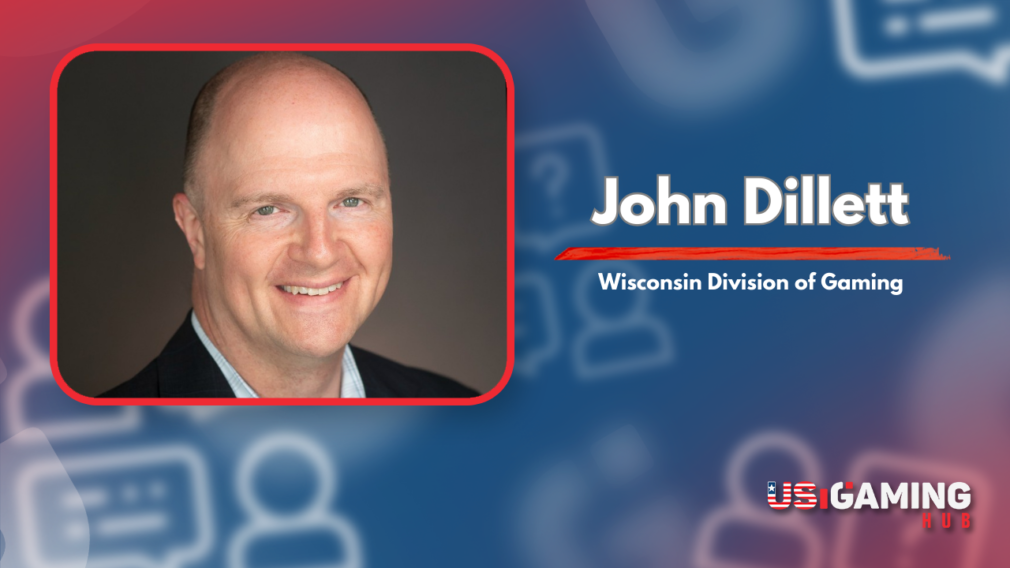“In Wisconsin we have established a unique working relationship with each tribal nation”
John Dillett, Administrator of the Wisconsin Division of Gaming, shares his thoughts on the unique relationship between tribes, the state, and commercial operators and provides key takeaways from the recent Wisconsin Gaming Regulators Association conference.

It seems that launching a competitive mobile sports betting market in Wisconsin is still a long way off. In your opinion, is it realistic to expect this to happen within the next 5-10 years? What needs to happen for this to occur?
Tribal gaming operators in the State of Wisconsin are currently authorized to offer mobile sports wagering within the boundaries of their reservations. However, there is still a state constitutional prohibition on most forms of gambling that would need to be addressed to allow a legal statewide mobile sports betting market. It’s difficult to say if or when this may change.
How do you view the widely discussed issue of cannibalization in the industry? Do you think the concerns of brick-and-mortar casinos and sportsbooks about a competitive mobile sports betting market are rational?
In the brief time we have had legal mobile sports wagering in the State of Wisconsin, we have not seen any reductions in betting activity at the brick-and-mortar casinos.
How does the current regulatory situation in various states relate to the size of the black market? Do you believe that when residents of a particular state have limited access to licensed operators, they are being “pushed” toward unlicensed operators?
Similar to other jurisdictions, it’s impossible to accurately measure the size of the black market in Wisconsin. As a result, it’s very difficult to measure the impact of legal operations on the unlicensed operators.
Do you think there is an ideal universal model of cooperation between tribes, the state, and commercial operators? Or should each case be assessed individually?
There is no universal solution to developing cooperative relationships between states, tribes and commercial operators. Each of our 11 tribal nations in the State of Wisconsin has a distinct culture and circumstances and have very different priorities so it’s important for us to deal with them as individual sovereigns.
By maintaining open lines of communication and treating each other with mutual respect, in Wisconsin we have established a unique working relationship with each tribal nation that has been mutually beneficial in the development of a successful, well-regulated industry in the state.
The WGRA conference is behind us. How do you assess this year’s event, and what were the most important takeaways?
The Wisconsin Gaming Regulators Association (WGRA) annual conference has become a vital part of the Wisconsin gaming landscape and continues to draw record numbers of regulators from the state and around the country.
This year’s event was a huge success, with over 250 attendees from Wisconsin, the Midwest and regulators from states as far away as Texas and California. We were also honored this year to be selected as the location for the NIGC’s annual gross gaming revenue presentation which speaks to the growing relevance of our conference.
As for takeaways, this year we intentionally added several sessions on new problem gambling initiatives that were very well received including the introduction of a cooperative project between the state, tribes and the Wisconsin Council on Problem Gambling to develop a statewide gambler’s self-ban list.
The conference also featured the first of what we plan to be regular statewide roundtable discussions between our sports book operators and regulators. Facilitating communication between the regulators and operators is a key component of our organization so the success of this roundtable was a key takeaway for all of us.
How would you describe the current stage of development of the sports betting industry in the U.S.? After the repeal of PASPA, we saw a wave of legalization in various states. Now, it seems this wave has lost momentum, and on the other hand, there are emerging discussions about marketing restrictions and tax changes.
Given the legal landscape in Wisconsin and the need to work individually with each tribe on a Compact Amendment, Wisconsin was not part of the initial rush of states opening sports wagering in the years immediately following the repeal of PASPA.
As a result, I believe we have benefitted from the experience of other jurisdictions and have had the opportunity to adopt what we see as successful models that have been implemented elsewhere. The current loss of momentum may be due to the fact that states are reevaluating some policies and are seeing the benefit of a more cautious approach.
Recommended
